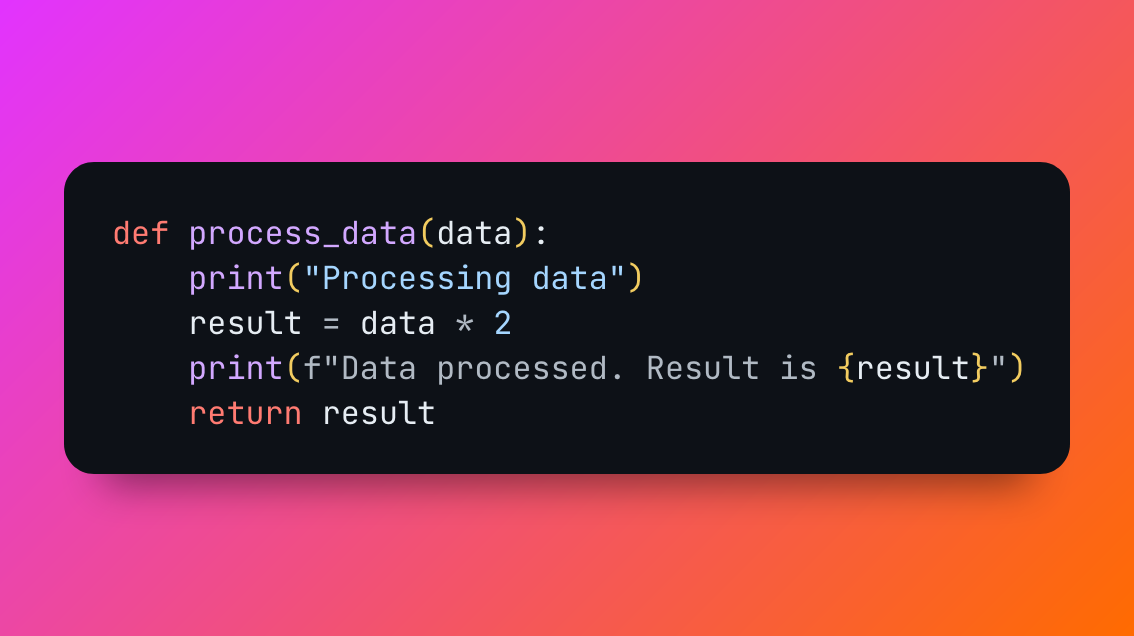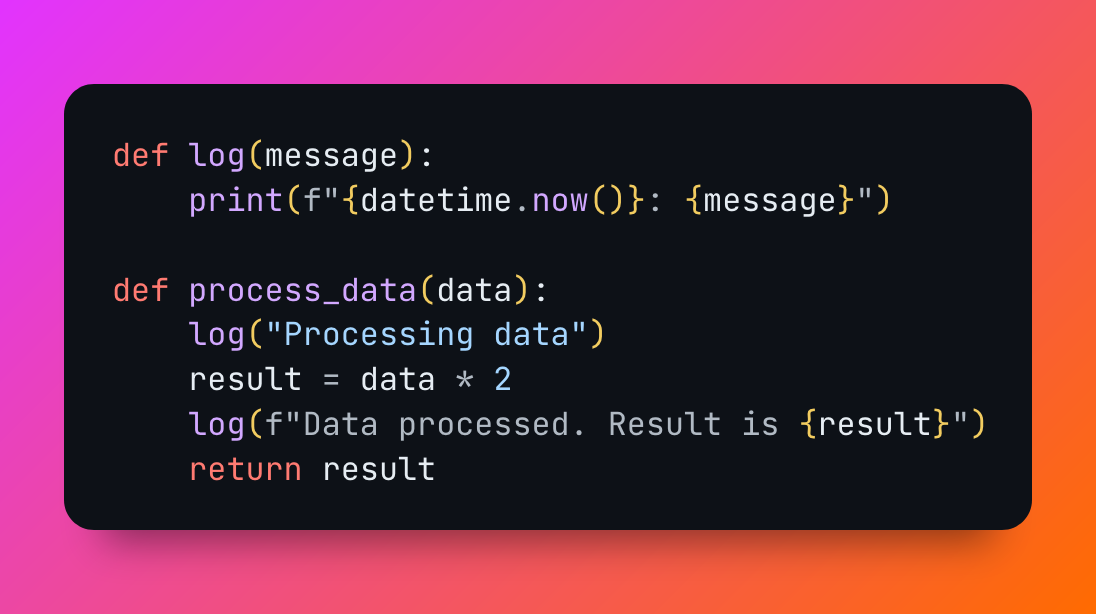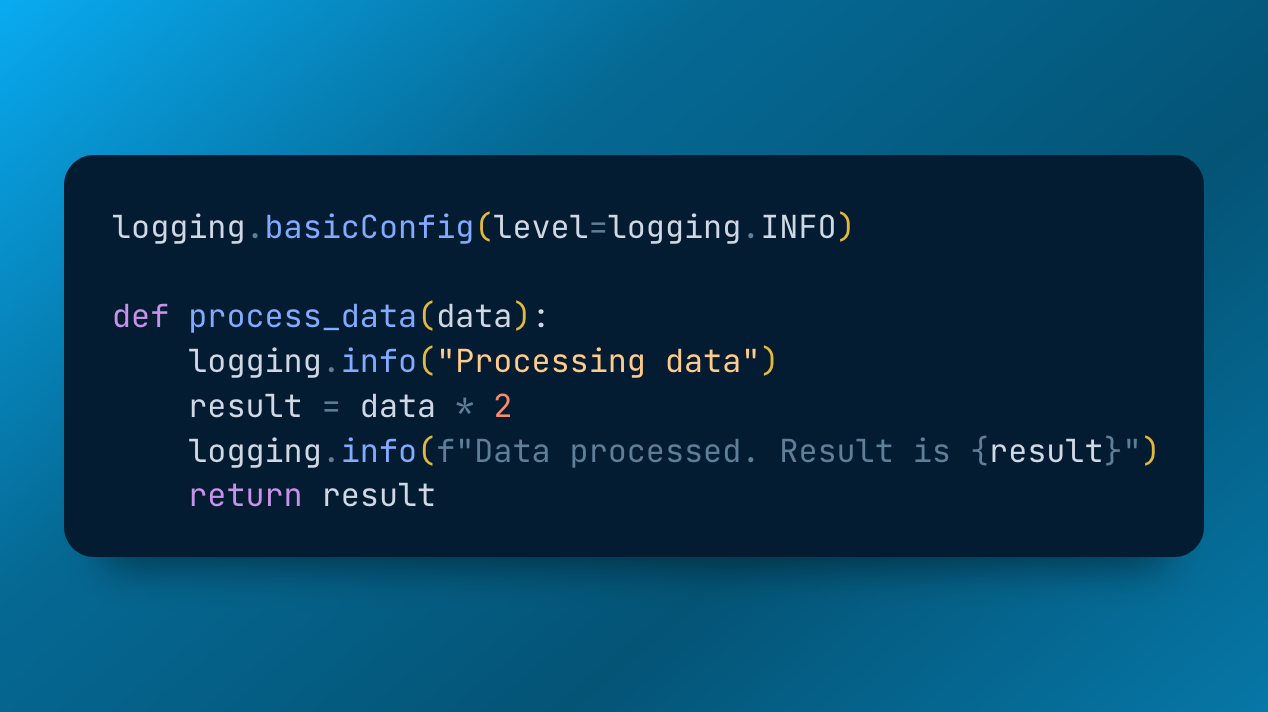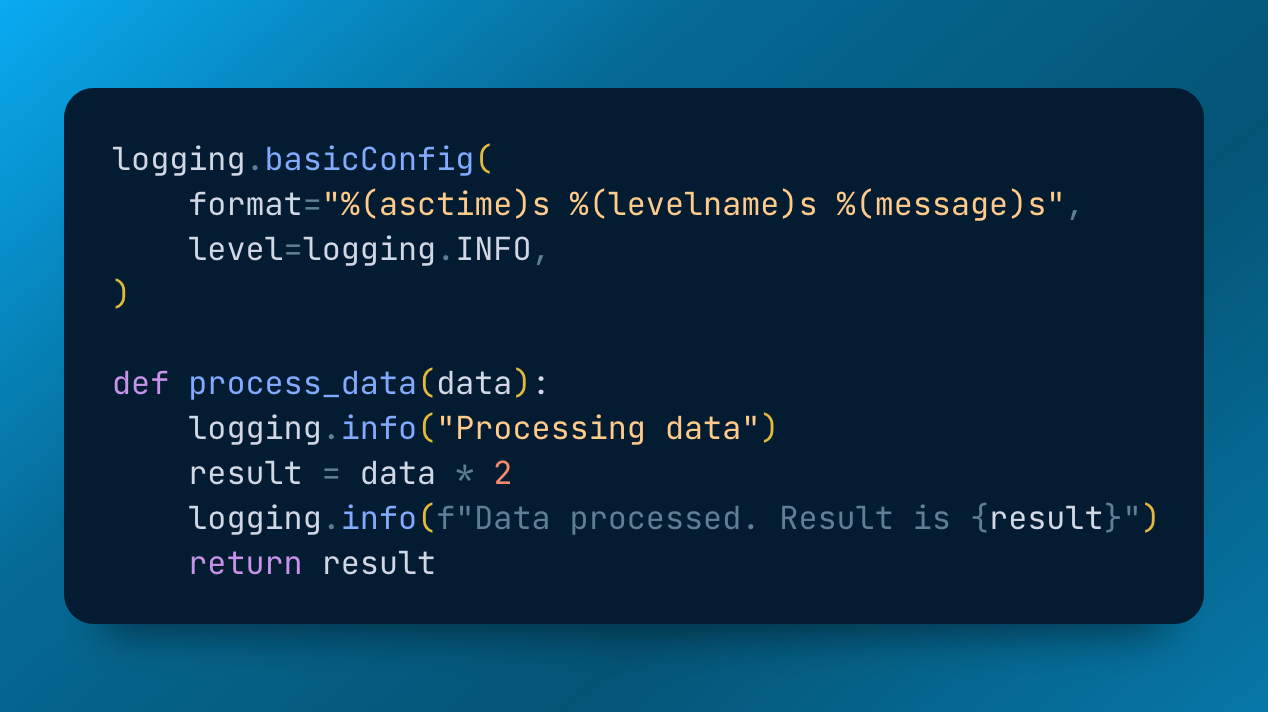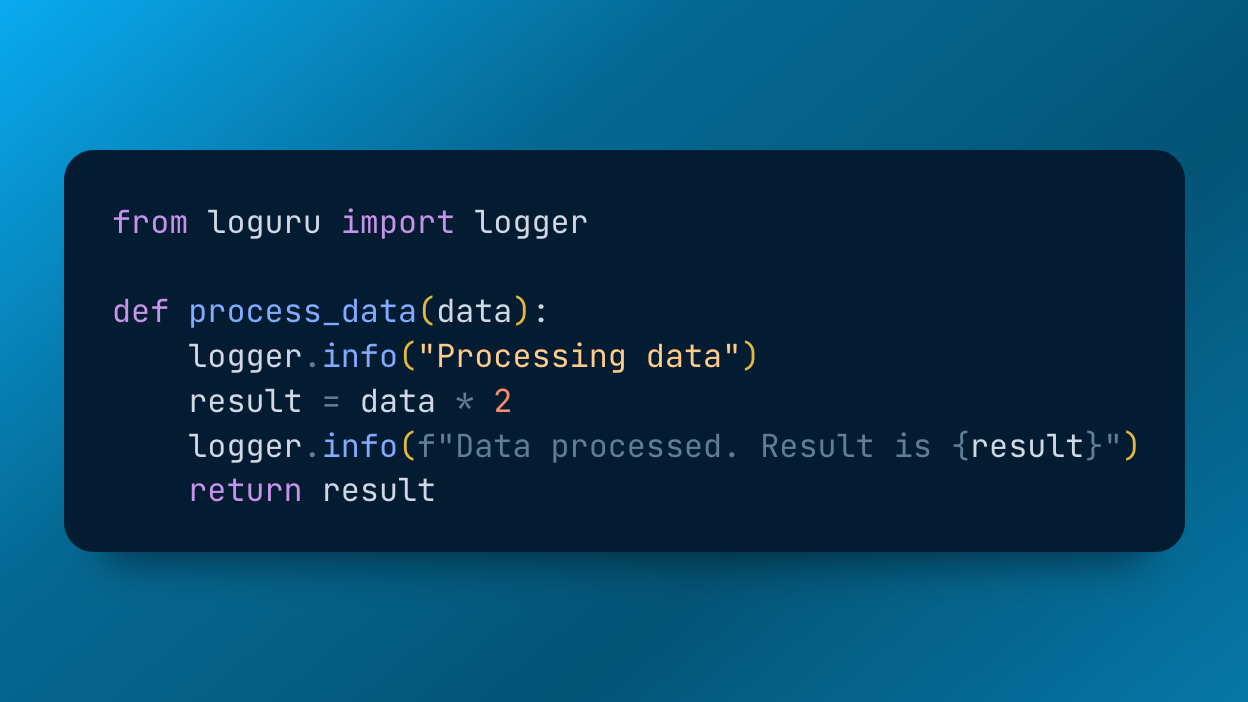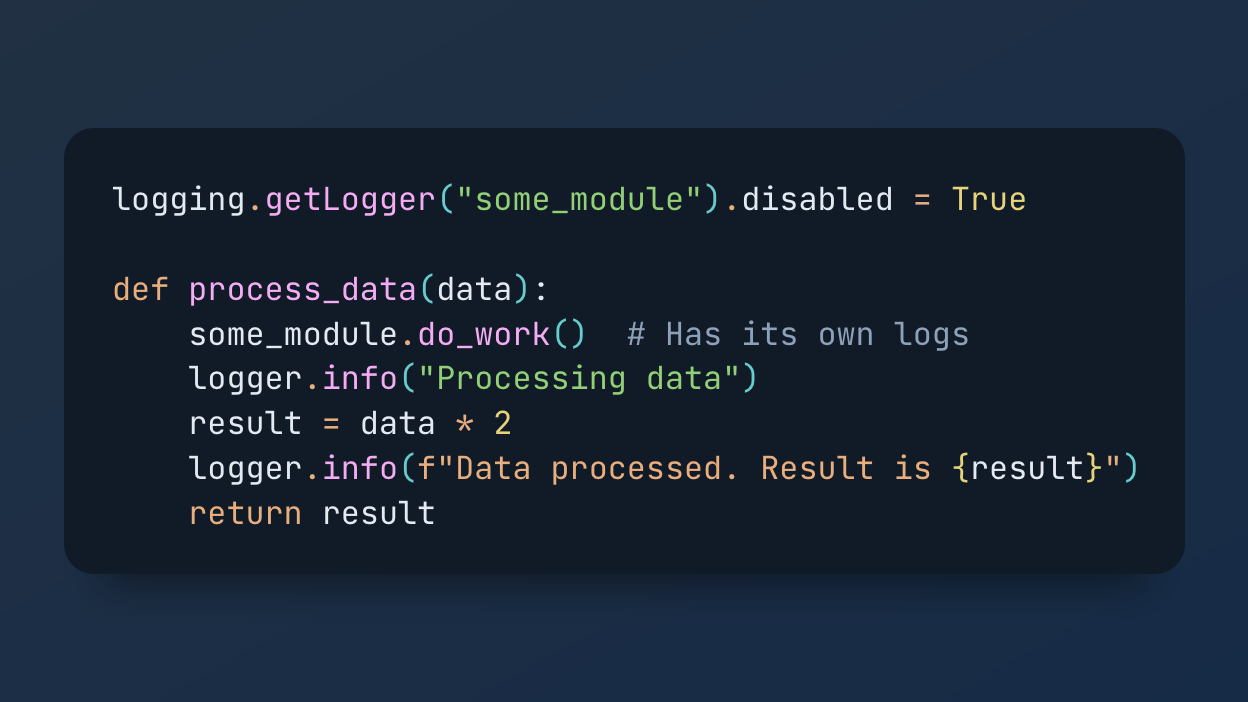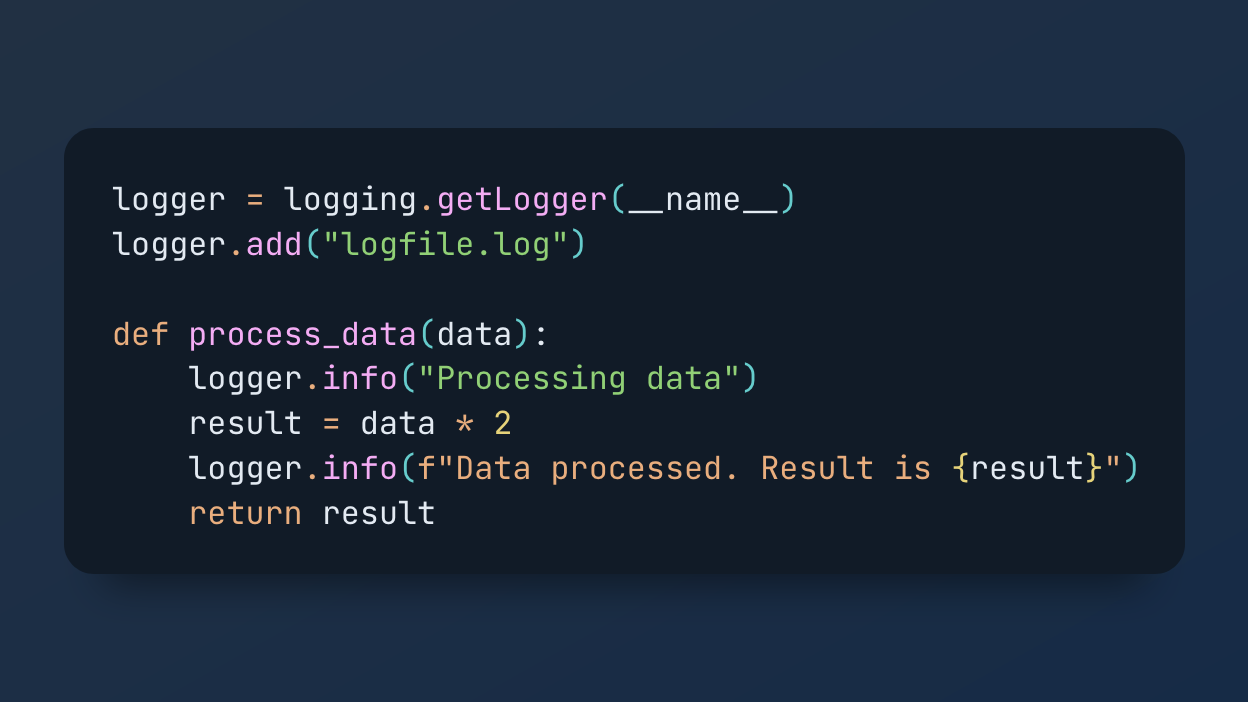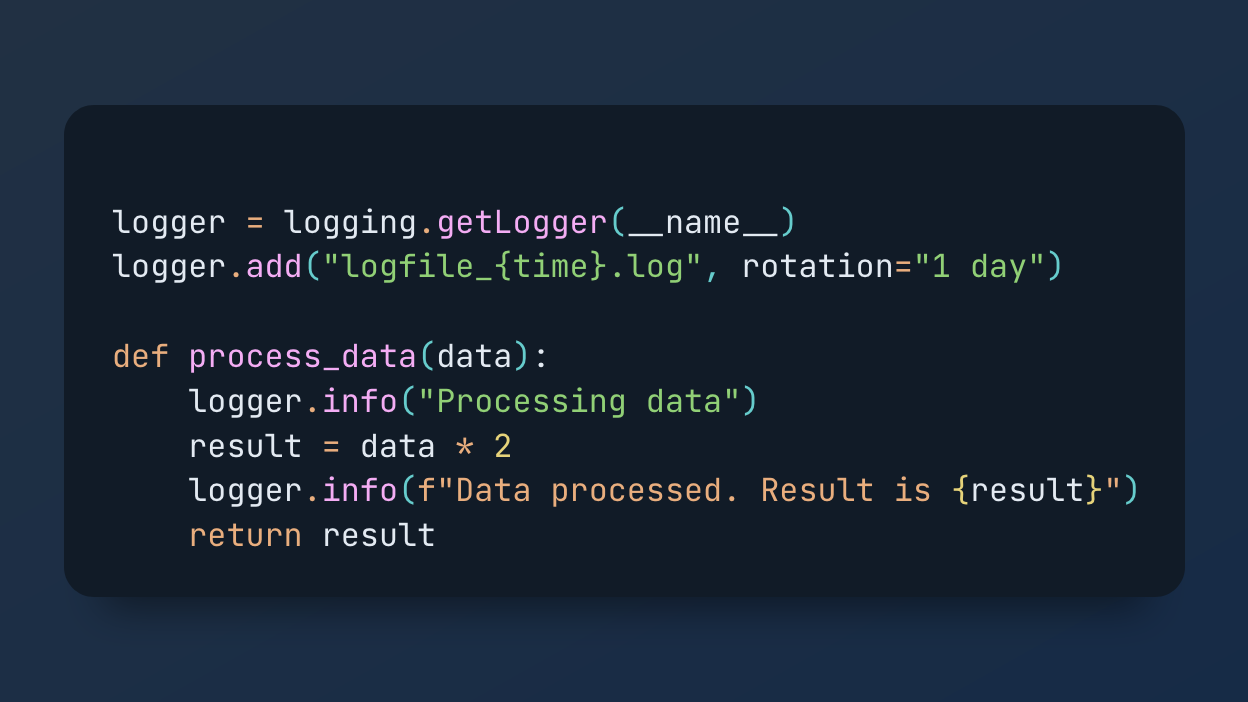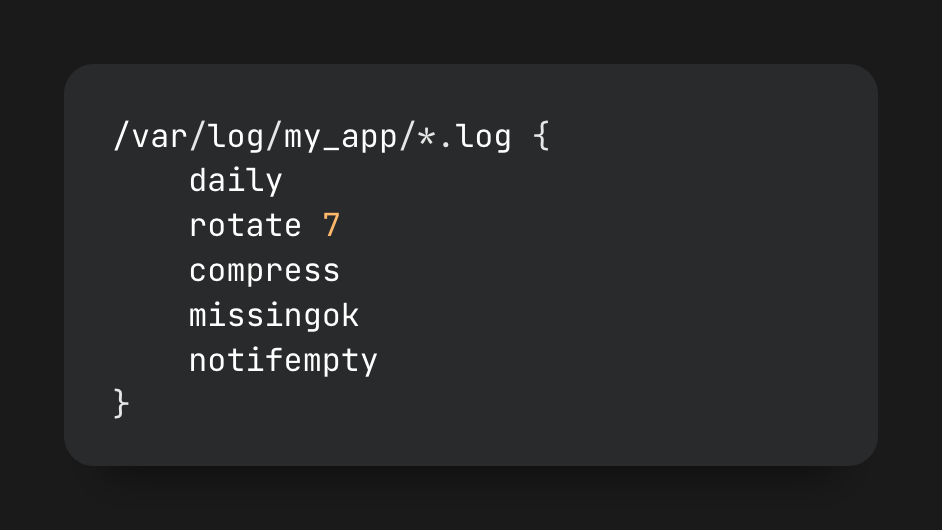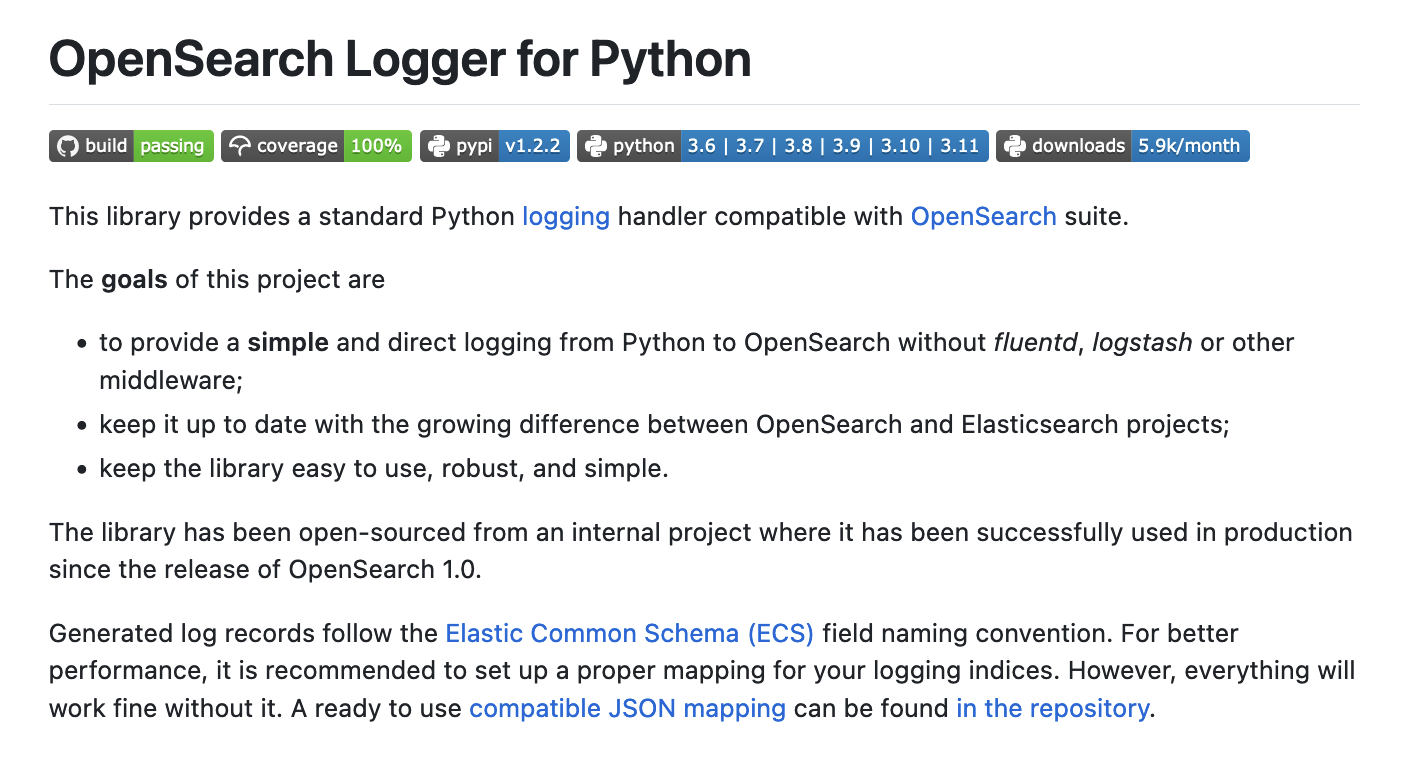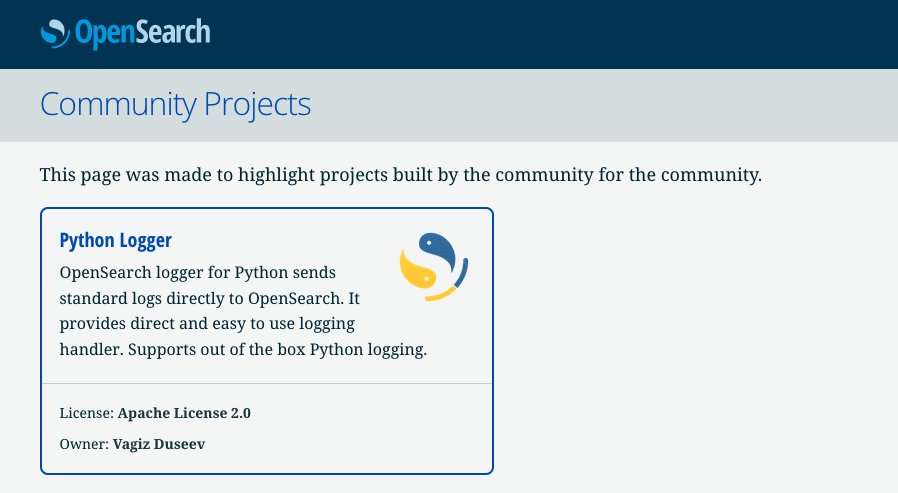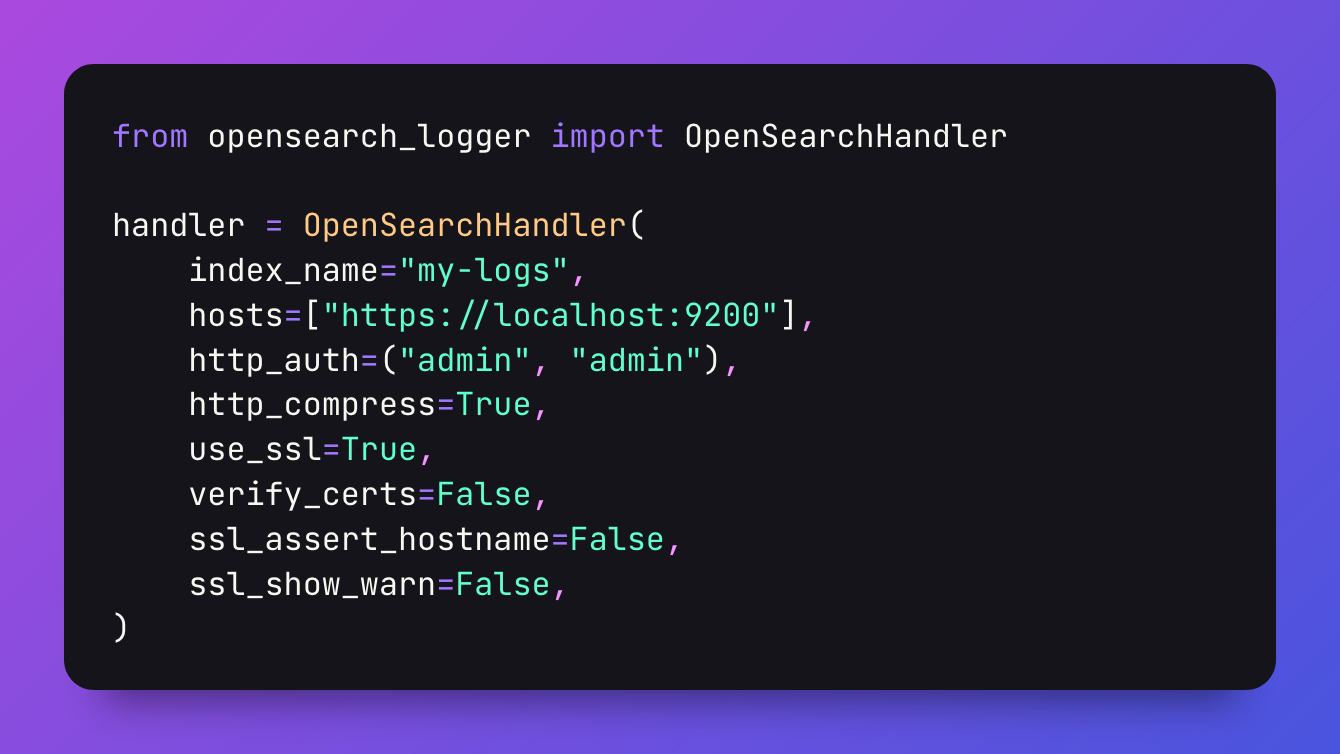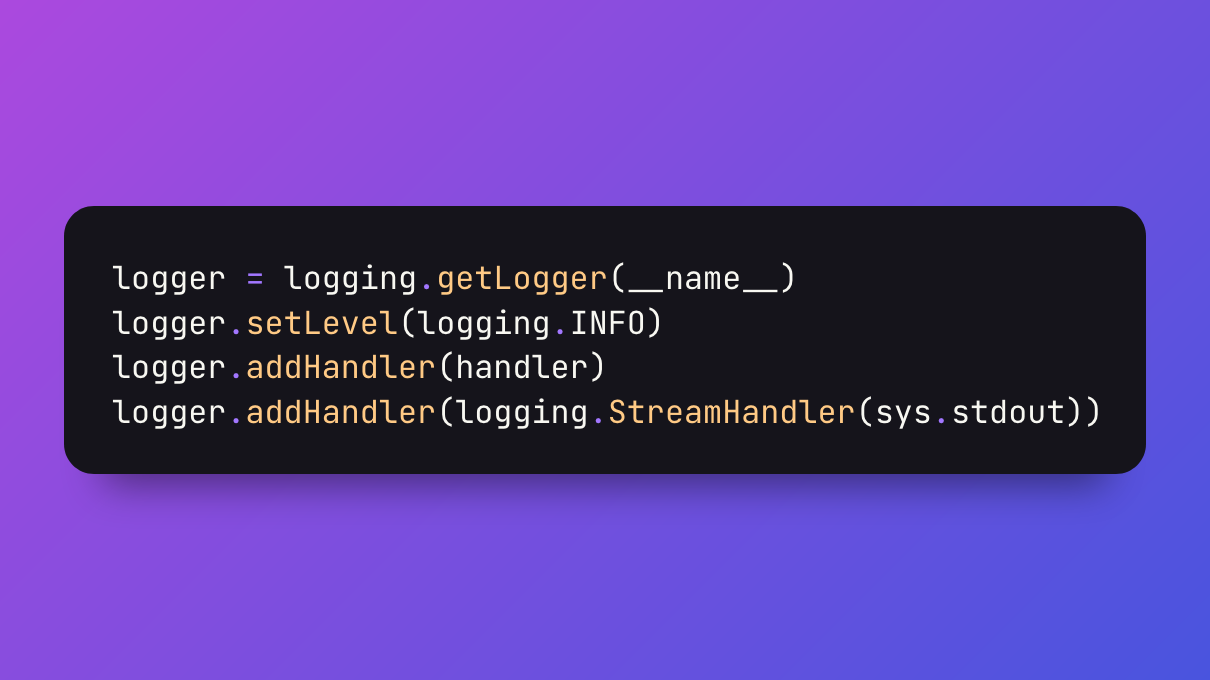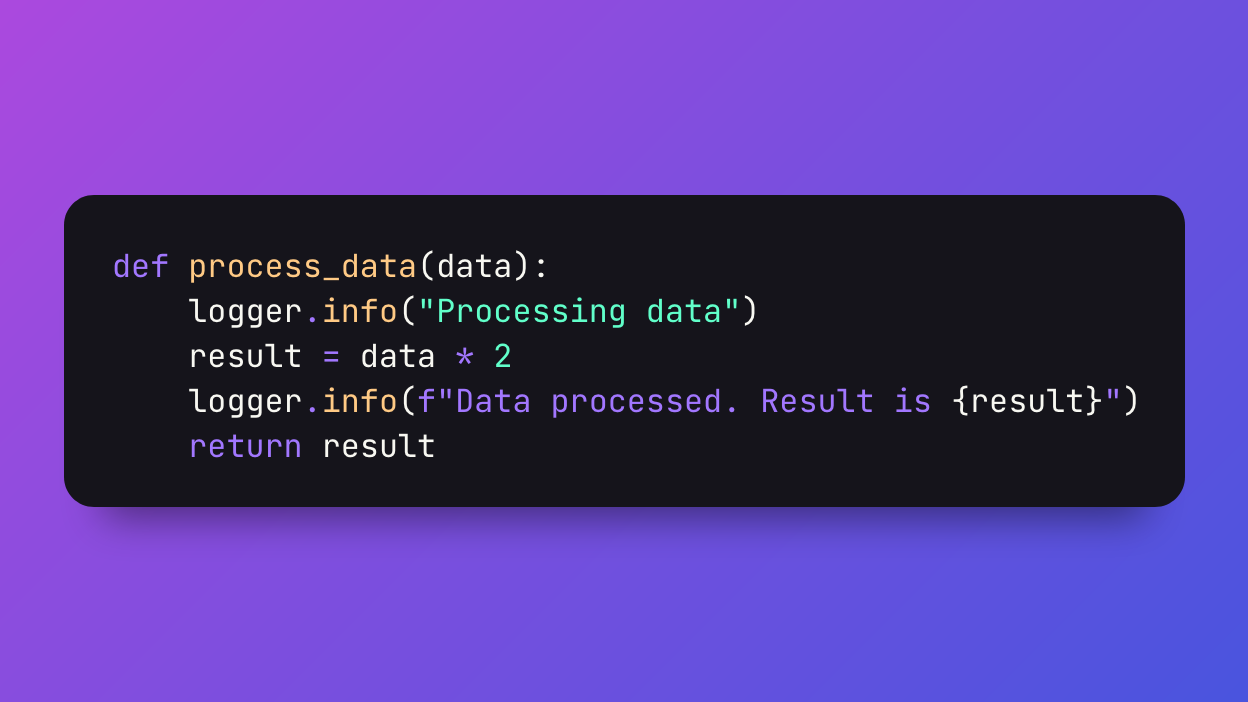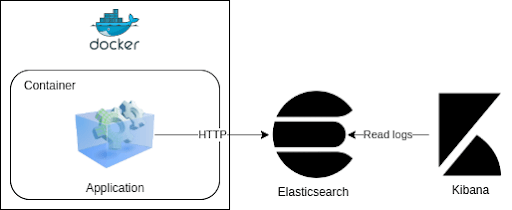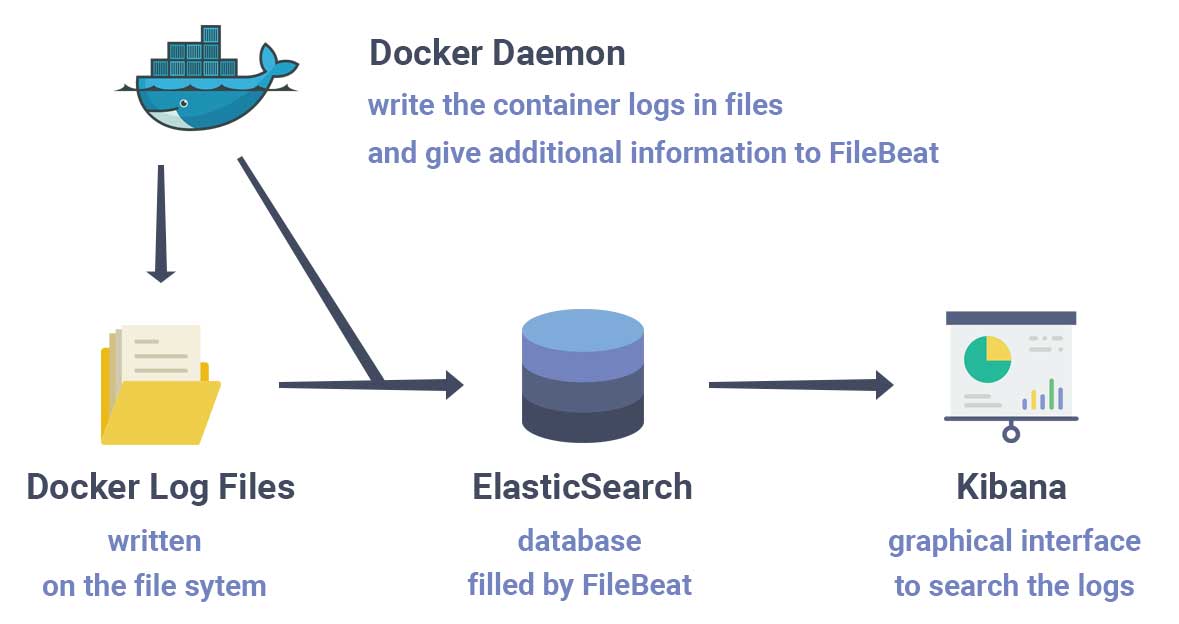PyCon PL 2023, Vagiz Duseev
Vagiz Duseev
@vduseev
First, it starts very simple
Gets more complicated over time
Adds more overhead in production
Becomes crucial during incidents
Turns into a headache at large scale and distribution
Let’s take a look
Let’s take a look
Let’s take a look
Let’s take a look
Let’s take a look
Let’s take a look
Let’s take a look
Let’s take a look
Who rotates the log if the program stops?
How are we going to update rotation config?
What if logs occupy all space on the disk?
Just grep itgrep –i “192.168.2.3” my-logs.log
What if it’s archived?zcat my-logs.5.tar.gz | grep –i “192.168.2.3”
Grep with regex? Grep not through terminal? Aggregate? Regex?
Let’s take a look
Logging config to control every aspect
Docker daemon drivers
FluentD for log collection
Let’s take a look
- Open source
- Stores logs, metrics, and traces
- Tailored for
- Lots of writes, small number of reads
- On the flight analytics for alerting
- Timeseries: all data has a timestamp
- Horizontally scalable
- Does not require running instances (except for alerting)
- Does not require schema to be defined upfront
- Agnostic to underlying storage
github.com/vduseev/python-logging
@vduseev
